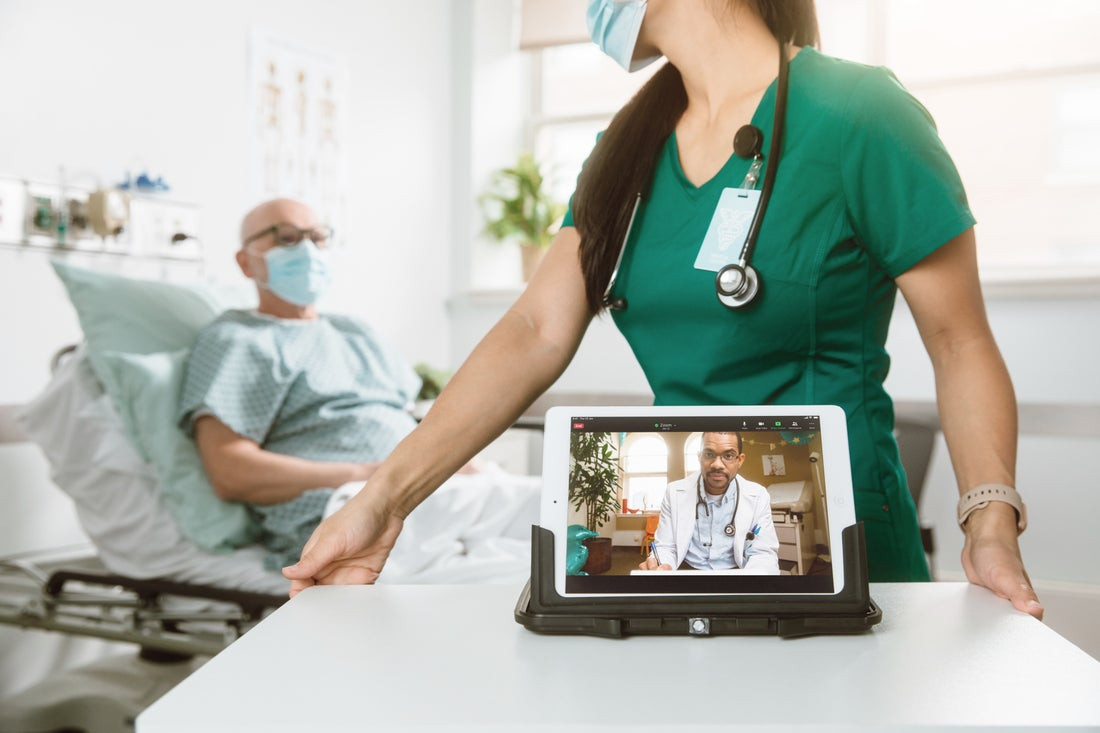
Re-imagining healthcare with Zoom’s AI-first platform
Zoom for Healthcare enables healthcare organizations to deliver seamless experiences across the patient journey and enhance collaboration among providers.
Updated on February 24, 2023
Published on November 16, 2022


As the way healthcare is delivered continues to evolve with technology, it is ever more critical for doctors, nurses, specialists, labs, and so many others involved in a patient’s care to effectively communicate and collaborate. That’s why healthcare organisations and hospital groups around the world need to have the best communication tools to support both their patients and their practitioners to deliver that care most effectively.
Being able to interact with your doctor virtually - whether that’s outpatient care delivered in the comfort of your own home, or a consultation with an expert based in a different region or even country - is popular, has improved the patient experience, and made services easier to access, democratising care. Zoom is at the forefront of this trend, and 8 out of the 10 largest US health systems chose Zoom.
In the UK, the country’s leading oncology hospital, The Royal Marsden in West London, known around the world for its work treating cancer, has been working with Zoom to explore how best to harness the power of telehealth technology to meet patients’ evolving needs. Ahead of Zoomtopia, when David Newey, CIO of Royal Marsden Hospital, will be giving a talk on his experience migrating the hospital on to the Zoom platform earlier this year, here’s a sneak peak into the three of the main reasons they decided to adopt Zoom:
“We chose Zoom because of its adoption by the public - the last thing we want is patients using a technology that they’re not familiar with in an already stressful situation whereby they are trying to speak to their clinician to understand the progression of their disease.”
“We were impressed by the speed of Zoom’s implementation and support function, which gave us confidence in their ability to deploy an Epic integrated Zoom instance to our clinical staff and patients.”
Great Ormond Street is known around the world as a centre of excellence in child healthcare. Read our case study on how Zoom is helping to deliver that world-class care.
Register here to attend Zoomtopia on 17th November 2022 and see David’s fireside chat with the UK healthcare team.
When choosing a communications platform, or any software that deals with valuable patient healthcare information, it’s vital that providers can trust that patient data will be exchanged and stored safely. In the UK, the National Health Service (NHS) has launched the NHS Digital Health Standards Audit to evaluate all digital health technology products deployed by the NHS, and whether they can demonstrate they meet its Digital Technology Assessment Criteria (DTAC). These are considered baseline standards and are required by law under the Health and Social Care Act 2012.
These standards are important as they provide NHS staff and patients with confidence that the digital health tools they are using meet stringent clinical safety, data protection, technical security, interoperability, usability, and accessibility standards set out by the NHS.
To support the NHS as they work to provide patients with effective and secure digital care, Zoom is DTAC and DCB0129 ready, with a DSP Toolkit in place.
To learn more about Zoom’s approach to privacy, explore our Trust Center or request access to Zoom’s DTAC toolbox by getting in touch.